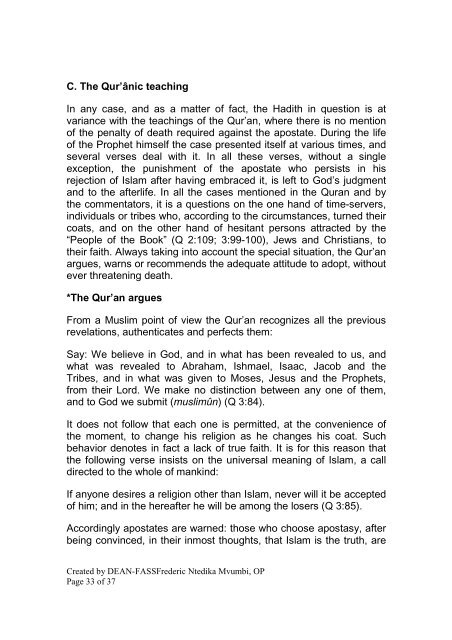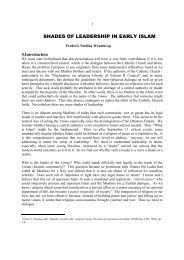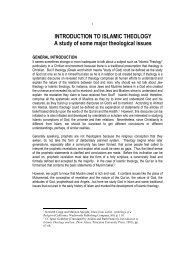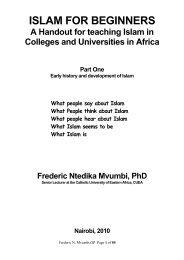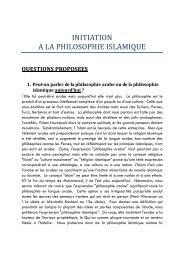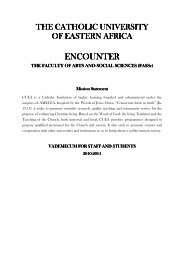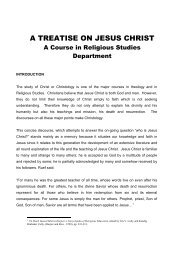PRINCIPLES FOR INTERRELIGIOUS DIALOGUE.pdf - CUEA
PRINCIPLES FOR INTERRELIGIOUS DIALOGUE.pdf - CUEA
PRINCIPLES FOR INTERRELIGIOUS DIALOGUE.pdf - CUEA
You also want an ePaper? Increase the reach of your titles
YUMPU automatically turns print PDFs into web optimized ePapers that Google loves.
C. The Qur’ânic teaching<br />
In any case, and as a matter of fact, the Hadith in question is at<br />
variance with the teachings of the Qur’an, where there is no mention<br />
of the penalty of death required against the apostate. During the life<br />
of the Prophet himself the case presented itself at various times, and<br />
several verses deal with it. In all these verses, without a single<br />
exception, the punishment of the apostate who persists in his<br />
rejection of Islam after having embraced it, is left to God’s judgment<br />
and to the afterlife. In all the cases mentioned in the Quran and by<br />
the commentators, it is a questions on the one hand of time-servers,<br />
individuals or tribes who, according to the circumstances, turned their<br />
coats, and on the other hand of hesitant persons attracted by the<br />
“People of the Book” (Q 2:109; 3:99-100), Jews and Christians, to<br />
their faith. Always taking into account the special situation, the Qur’an<br />
argues, warns or recommends the adequate attitude to adopt, without<br />
ever threatening death.<br />
*The Qur’an argues<br />
From a Muslim point of view the Qur’an recognizes all the previous<br />
revelations, authenticates and perfects them:<br />
Say: We believe in God, and in what has been revealed to us, and<br />
what was revealed to Abraham, Ishmael, Isaac, Jacob and the<br />
Tribes, and in what was given to Moses, Jesus and the Prophets,<br />
from their Lord. We make no distinction between any one of them,<br />
and to God we submit (muslimûn) (Q 3:84).<br />
It does not follow that each one is permitted, at the convenience of<br />
the moment, to change his religion as he changes his coat. Such<br />
behavior denotes in fact a lack of true faith. It is for this reason that<br />
the following verse insists on the universal meaning of Islam, a call<br />
directed to the whole of mankind:<br />
If anyone desires a religion other than Islam, never will it be accepted<br />
of him; and in the hereafter he will be among the losers (Q 3:85).<br />
Accordingly apostates are warned: those who choose apostasy, after<br />
being convinced, in their inmost thoughts, that Islam is the truth, are<br />
Created by DEAN-FASSFrederic Ntedika Mvumbi, OP<br />
Page 33 of 37


